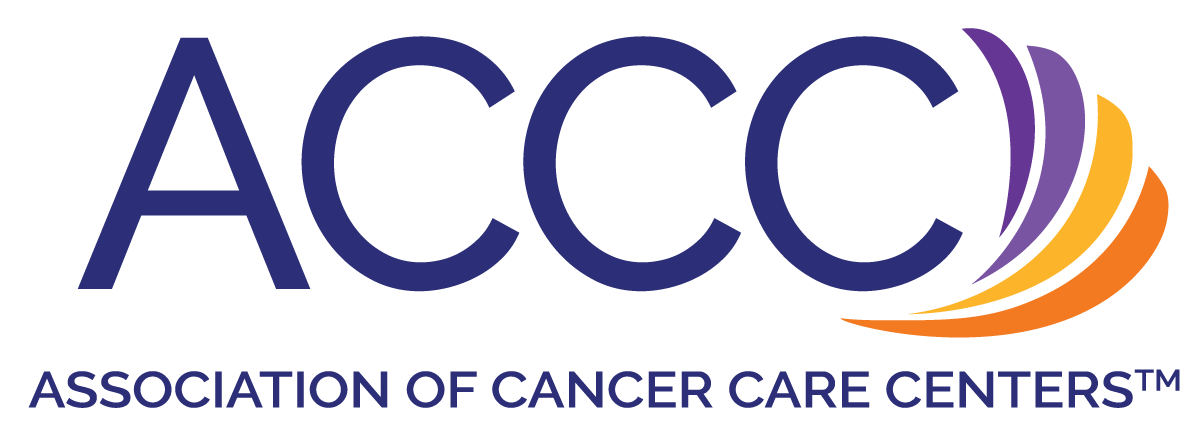
Dr Margaret Liang Discusses Key Initiatives in Financial Advocacy Programs for Patients With Cancer

Margaret Liang, MD, MSHPM, gynecologic oncologist and program director for the gynecologic oncology fellowship program at Cedars-Sinai Cancer Center, discusses the Association of Community Cancer Centers' Financial Advocacy Services guidelines, which focus on providing financial support to patients with cancer.
Even patients who are insured often face financial toxicity, and it is important to remove that stigma or bias that only uninsured patients struggle with this when screening for financial barriers, says Margaret Liang, MD, MSHPM, gynecologic oncologist and health services researcher, program director for the gynecologic oncology fellowship program at Cedars-Sinai Cancer Center.
This transcript has been lightly edited for clarity.
Transcript
How are the Association of Community Cancer Centers' (ACCC's) Financial Advocacy Services guidelines particularly valuable for health care institutions looking to establish effective financial advocacy programs for patients with cancer?
The first thing for practices that are newly starting to establish a financial advocacy program, or once they have been established, is that there truly is no single role that necessarily has to encompass all of the different services that are provided. It can be one person and it may be multiple people, like social workers, patient navigators, financial counselors, and benefits verification personnel.
There are 3 main domains that we have shown in the guidelines. The first one is provision of advocacy financial services. This encompasses patient education about their insurance or costs. Also, benefits verification and insurance optimization, financial distress screening to figure out what patient's financial needs are, and then using that to refer patients to resources and assistance programs as available.
And the second thing is more program management. So, this is the different roles and responsibilities of the various individuals that are involved. How do we train them well to be able to communicate to patients about this sensitive topic? How do we exchange information between care team members? And then eventually, how do we track our progress and follow metrics?
Then the third one is engaging with partner organizations. So that might be external foundation or nonprofit organizations and pharmaceutical companies to look at assistance markets that are available. That would be the third domain.
What are some best practices in financial advocacy that have led to improved patient outcomes and financial well-being? Are there any specific lessons learned or pitfalls to avoid?
I think the biggest thing that I found helpful is to get buyin from your leadership. Figure out what metrics are important to them and how you can make the case of why you need to have personnel that are dedicated to financial advocacy services.
In order to do that, you often need to engage champions. So, this could be clinical champions like me, as an oncologist. I like to be a champion, because I'm seeing patients and seeing how the financial impact and affordability can really impact their care. Certainly, social workers are often the frontline people that are seeing a lot of what our patients are having to go through. So, use the champions to help tell the patient's story and remind the administrators of the “why” in financial advocacy services. Those are some of the biggest things.
In terms of pitfalls, I do think in general, just be patient and stay flexible; it's a really complicated problem. Things are constantly changing, like on the ground, and feel sort of frustrating. I think using a team-based approach can be helpful. You're leveraging the energy and thinking outside of the box among various different people. I think one of the resources that ACCC has that’s really great is a member exchange specifically for financial advocates. So, people who were encountering a barrier could type into that message forum. And I look at it just out of interest, and I can see that there's a lot of engagement between financial advocates at many different institutions.
One other thing I just wanted to mention is, as practices are building financial advocacy, I do think it's important as they're rolling out financial distress screening or financial needs screening to really think about doing it universally, because that really can reduce the stigma that's associated with asking patients who may feel that it's a sensitive topic if they know that actually, everyone's being asked this and then also reduce our bias where we think only uninsured patients have these problems. Actually, people who are employed, people who have insurance, they're still encountering a lot of these affordability barriers. And so those could be missed opportunities if we weren't screening everybody.
Newsletter
Stay ahead of policy, cost, and value—subscribe to AJMC for expert insights at the intersection of clinical care and health economics.








